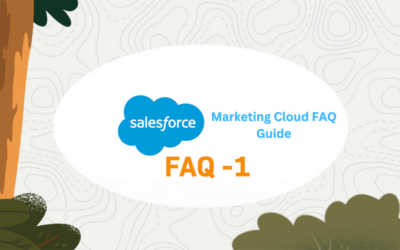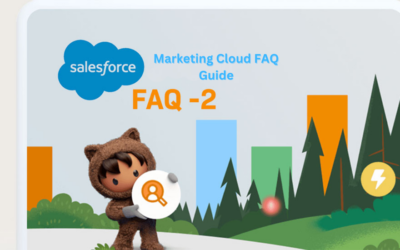Selecting the right customer support software is a critical decision for businesses striving to provide exceptional service while optimizing their internal operations. In this era of heightened customer expectations, the choice between Freshdesk and HubSpot becomes a pivotal one. Freshdesk, with its reputation for user-friendliness and budget-friendly pricing, stands as an accessible solution that caters to a wide range of business sizes. In contrast, HubSpot, renowned for its all-in-one approach encompassing marketing, sales, and customer support, offers a comprehensive suite of tools that can transform the way businesses interact with their customers. This comprehensive guide aims to provide an in-depth exploration of Freshdesk and HubSpot, analyzing their individual strengths, and weaknesses, and conducting meticulous comparisons across various dimensions. By examining these two prominent customer support software solutions in detail, we aim to empower you with the knowledge needed to make an informed choice, tailored precisely to your business’s unique needs and aspirations.
In the ensuing sections, we will meticulously dissect eight pivotal aspects of these platforms, examining how they fare in terms of pricing, ease of use, integration capabilities, automation features, reporting and analytics tools, customization options, scalability potential, and self-service offerings. Each of these facets will be explored with a focus on how Freshdesk and HubSpot compare, enabling you to assess which platform aligns best with your organizational requirements. Whether you are a small startup aiming to deliver efficient customer support on a budget or a large enterprise looking to streamline customer interactions and data across multiple departments, this guide will equip you with the insights necessary to make a well-informed decision in the ever-evolving world of customer support software. If you need assistance with Salesforce CRM setup and optimization, companies like CRM Force can provide valuable expertise and support.
Seamless Integration: A unique attribute of HubSpot’s customer support is its seamless integration with its marketing and sales tools. This integration creates a unified customer experience, ensuring that customer data and interactions are centralized for a more personalized and efficient support process.
Automation and Workflows: HubSpot’s automation features extend to ticket routing, responses, and follow-ups. This degree of automation streamlines support processes, reducing manual workload for support agents and ensuring prompt resolution of customer issues.
Knowledge Base: HubSpot provides a comprehensive knowledge base for creating and maintaining articles. This feature makes it effortless for customers to find answers to their questions independently, reinforcing customer satisfaction and minimizing support ticket volume.
Detailed Customer Profiles: HubSpot’s CRM system offers comprehensive customer profiles, granting support agents a 360-degree view of each customer’s interactions with your business. This enhances the ability to deliver personalized and efficient support.
Reporting and Analytics: HubSpot equips support teams with in-depth reporting and analytics tools. These tools enable support managers to track their performance comprehensively and pinpoint areas for improvement. A data-driven approach is fundamental for refining support strategies.
Customization: HubSpot’s versatility and customization capabilities are highly esteemed. This software can be tailored to meet specific business requirements, ensuring a harmonious alignment with unique processes and workflows.
1- Pricing
Freshdesk: Freshdesk offers a range of pricing plans to suit businesses of various sizes and budgets. The pricing typically starts with a free plan for very small businesses, followed by affordable options for startups and small to medium-sized enterprises. Comparatively, Freshdesk’s pricing is more budget-friendly.
HubSpot: HubSpot’s pricing is often higher than Freshdesk’s because it includes a comprehensive suite of tools, such as marketing, sales, and customer support, all in one platform. While it offers a broader range of features, it may be a better fit for larger enterprises or businesses willing to invest in a holistic solution.
2- Ease of Use:
Freshdesk: Freshdesk is known for its user-friendly interface. It offers a simple, intuitive design that makes it easy for support teams to quickly adapt to the software. This reduces the learning curve and enables faster onboarding.
HubSpot: HubSpot’s extensive feature set can be more complex, potentially resulting in a steeper learning curve. It offers a wide array of tools, which may require additional training and time to fully grasp, especially for new users.
3- Integration
Freshdesk: Freshdesk provides solid integration capabilities, allowing it to connect with various third-party tools and applications. This is essential for businesses looking to create a seamless workflow and ensure data flows cohesively within their tech stack.
HubSpot: HubSpot excels in integration due to its all-in-one approach. It tightly integrates customer support with marketing and sales tools, offering a unified customer experience. This is particularly advantageous for businesses seeking comprehensive alignment across departments.
4- Automation:
Freshdesk: Freshdesk offers robust automation features primarily centered on customer support tasks. It includes features like automated ticket routing and assignment, which significantly reduce response times and ensure equitable distribution of support tickets among agents.
HubSpot: HubSpot’s automation extends across marketing, sales, and customer support. This integrated approach can lead to more personalized responses and a more efficient customer support process. It can also help automate marketing and sales tasks, enhancing the overall customer journey.
5- Reporting and Analytics:
Freshdesk: Freshdesk provides solid reporting and analytics tools, allowing support managers to track key performance metrics, monitor response times, and assess agent performance. These insights are valuable for data-driven decision-making and optimizing customer support operations.
HubSpot: HubSpot offers comprehensive reporting and analytics capabilities, not only for customer support but also for marketing and sales. This all-encompassing view of data is particularly beneficial for businesses heavily reliant on data analysis to inform their strategies and improve their operations.
6- Customization:
Freshdesk: While Freshdesk allows for some customization, it may have certain limitations in tailoring the software to very unique business processes. It is more suitable for businesses with standardized support operations.
HubSpot: HubSpot is highly customizable. Businesses with specific requirements and unique workflows will find HubSpot a valuable solution. It can be tailored extensively to fit precise needs, ensuring alignment with distinct business processes.
7- Scaling:
Freshdesk: Freshdesk is a scalable solution that can accommodate businesses looking for steady growth. It is suitable for expanding support demands and can evolve with your business as you gradually grow.
HubSpot: HubSpot, with its broader suite of tools and integrated approach, may be a better fit for businesses with ambitious growth plans. It scales seamlessly to accommodate the rapidly changing needs of fast-growing companies, extending beyond customer support to encompass marketing and sales.
8- Self-Service Options:
Freshdesk: Freshdesk empowers customers to find answers independently through a knowledge base, FAQs, and community forums. This enhances customer satisfaction by providing self-help options and significantly reduces the volume of incoming support tickets.
HubSpot: HubSpot provides a comprehensive knowledge base for customers to find answers on their own. This self-service approach aligns with the modern trend of customers preferring self-help options, ultimately improving their experience and decreasing the workload on support teams.
Conclusion
In the rapidly evolving landscape of customer support software, choosing between Freshdesk and HubSpot is a decision that demands careful consideration. As we conclude this comprehensive evaluation, it’s crucial to remember that the “Comparison of HubSpot vs Freshdesk” is not a matter of one being definitively superior to the other; rather, it’s about finding the best fit for your unique business needs. Freshdesk offers affordability, user-friendliness, and multichannel support, making it an excellent choice for small to mid-sized businesses. On the other hand, HubSpot provides a more extensive suite of tools, seamless integration, and a high degree of customization, making it an attractive option for larger enterprises with diverse requirements. The key is to align your choice with your budget, long-term growth strategy, and the existing technology stack, ensuring that the customer support software you select becomes an integral part of your business’s journey toward exceptional customer service and operational excellence.
In the ever-advancing domain of customer support, your decision between Freshdesk and HubSpot should reflect not just the immediate needs but also the long-term vision for your business. It’s a choice that extends beyond software features and pricing. It’s about investing in the tools that will empower your support teams, enhance customer satisfaction, and drive operational efficiency. Whichever path you choose, let it be a strategic one, rooted in a thorough understanding of your unique requirements. With Freshdesk and HubSpot at your disposal, you have the means to elevate your customer support to new heights, ensuring that every customer interaction is a step toward achieving your business goals. To learn more about how CRM Force can assist you in recruiting top CRM talent and optimizing your CRM strategies for successful drip campaigns, contact us today. Together, let’s maximize your customer engagement Contact Us today.





